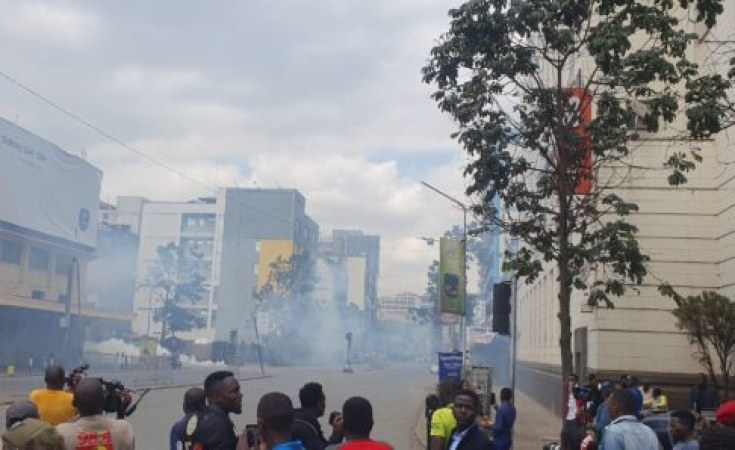Nairobi — The Orange Democratic Movement (ODM) Central Committee sanctions recall processes for six lawmakers for backing Finance Bill 2024 which was withdrawn by President William Ruto following protests that escalated to deaths and skirmishes across the country.
Kenyans, especially the Gen Z who are also unhappy with President William Ruto's leadership, have staged demonstration for three weeks now despite the withdrawal of the Bill.
Legislators facing the headache of potentially losing their legislative seats include Elisha Odhiambo (Gem),Gideon Ochanda (Bondo),Emmanuel Wangwe (Navakholo), Memusi Kanchori (Kajiado Central),Bernard Shinali (Ikolomani) and Caroli Omondi (Suba South).
ODM Secretary General Edwin Sifuna revealed plans to recall lawmakers whom he termed as 'repeat offenders' who have violated the sacred oath to the wishes of the electorate.
"The criteria was very simple, these are repeat offenders. Those who voted against the wish of the people in 2023 and 2024 because they are few who met their Damascus moment," he said.
Since Kenyans took to social media to voice their opposition to the Finance Bill 2024, using the hashtag #Reject Finance Bill calls have been loud for recalling action against lawmakers who supported the Bill.
This has raised questions about the feasibility of recalling an MP.The process of recalling an MP which is governed by the Constitution and the Elections Act has always been a hurdle following legal avenues.
Recalling MPs process
The law stipulates that an MP can be recalled on four grounds: Gross violation of the Constitution or any other law, committing an offence under the Elections Act, misconduct likely to bring disrepute to the office and if the MP is found to have mismanaged public funds.
"We will be starting with these six MPs who will set a clear example for the rest moving forward,"Sifuna said.
The law envisages that an MP can only be recalled two years after elections and 12 months before the next election.The process can be initiated by a registered voter in the respective constituency.
The petitioner must collect signatures from at least 30 per cent of registered voters in the constituency.The signatures must include at least 15 per cent of the voters in each of at least half of the wards in the constituency.
The petitioners will then proceed to submit the collected signatures to the Independent Electoral and Boundaries Commission (IEBC)
The signatures must be accompanied by a list specifying the grounds upon which the petitioner wants the lawmaker to lose their seat which must include evidence supporting the claims and a statutory declaration satisfying the signatures.
The electoral body will verify the signatures and the validity of the petition.If IEBC finds that the petition meets the threshold, it will notify the MP who will then have an opportunity to respond to the allegations.
IEBC will then notify the Speaker of Parliament within 15 days of the verification of the petition and proceed to initiate the recall.
The Commission will then hold fresh elections within 90 days of the verification of the petition.
The MP will lose their seat if a simple majority of the electorate votes in the recall election to remove them from office.IEBC will then organise a by-election to replace the MP.
President William Ruto has vowed to put in place a fully constituted electoral commission within 10 days.
The protestors had demanded that the president reconstitutes the Independent Electoral and Boundaries Commission (IEBC) within 30 days to facilitate their move to recall all rogue Members of Parliament and hold fresh elections.
This has been a key issue in the ongoing nationwide protests marked by the significant youth involvement.
The president revealed that he had received a parliamentary report authorising him to appoint new commissioners.


